A Victorian cardinal once wrote, “To live is to change. And to be perfect is to have changed often.”
Billy Twelvetrees doesn’t talk theology when we meet, but the past year has taught him much about change. Both the change that comes from within and the change that is imposed from without. And behind the relaxed surfer dude persona – behind the trademark bobble-hat, the blond corkscrew curls and the disarmingly high-pitched giggle – he admits to an undertow of perfectionism that has constantly made him ask himself: just how do I manage to stay in the building?
A year ago, and Twelvetrees was chucking a ball about with his close friend Ed Slater during a sunny pre-season session at Gloucester. A month later, Slater announced he had been diagnosed with motor neurone disease (MND). Today, Twelvetrees and his wife are on near-constant standby for their friend and his family as the disease worsens. The emotions remain raw.
Both Twelvetrees and Slater have large families with kids of a similar age. They both trod a path to Gloucester that took them via Leicester Tigers. They both possess a keen rugby intelligence that, over the years, made them obvious leadership material.
Talking about his friend, especially when recounting the care that his wife has shown Slater’s family, Twelvetrees is close to tears. At 34, rugby has taught Billy Twelvetrees many things, but you sense that what he is learning now is just how far love can reach on and off the field amid the cruellest twists of fate.
Shorn and bronzed, Twelvetrees is dressed in dark green. He is shredded. Standing next to him, his aura is more backrow forward than inside back. He slightly resembles a soldier who has just stepped off a Hercules following an overseas tour in hotter climes.
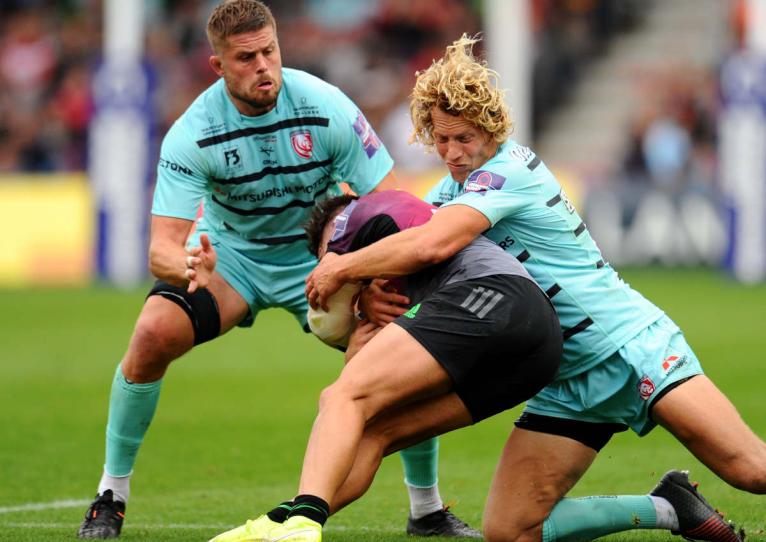
“Ed started pre-season with us and was passing a ball with us, and nine months on he’s really struggling,” says Twelvetrees, puffing out his cheeks. “Jesus Christ”.
“MND is a horrendous disease that you just want to kick out of the world. It’s an awful thing. But my mate’s got it. He and his wife have three young children who are similar to my young children. It’s just incredibly sad because their dad is really ill and it’s not getting any better. It’s getting worse every day.
“My wife and I, we just said – we’re here for you every single day we’re all together. Full stop. My wife is an extremely caring lady, four of her own, looks after anyone… The Slaters say they need something and we’re on it straight away because we’re just incredibly sorry for Jo and the kids. I know Ed feels that as well. It’s a horrible situation for them. That’s been a reality check for me and my family.
Ed’s situation has changed my perspective. Yes, I take the losses hard. I’m still very much that professional rugby player who gets fuming. But I can park it and see the greater picture in life.
“That’s why I’m like, how lucky am I? I’ve had the career I’ve had at Gloucester, at Leicester, at Bedford, with England. I’m so grateful. Ed’s situation has changed my perspective. Yes, I take the losses hard. I’m still very much that professional rugby player who gets fuming. But I can park it and see the greater picture in life. Having kids has been great for that as well. Just seeing them smile and what enjoyment life gives them is good for me.”
Along with Jordy Reid, who is joining him on the trip eastwards to Ealing Trailfinders for the 2023-24 season, Twelvetrees had his locks shaved off after Gloucester’s final home game. Their combined dreadlocks and corkscrews raised £15,000 for the 4Ed campaign
After more than a decade in front of Gloucester’s Shed, it is not only his hair that Twelvetrees is shedding. He is also shedding a skin. He is shedding his status as one of the Premiership’s most consistent and recognisable performers to drop down a league. And as he reflects on this, Twelvetrees’ manner swings between the reflective and the chipper. Even when diving into the deeper stuff, the distinctive giggle is never far from the surface.
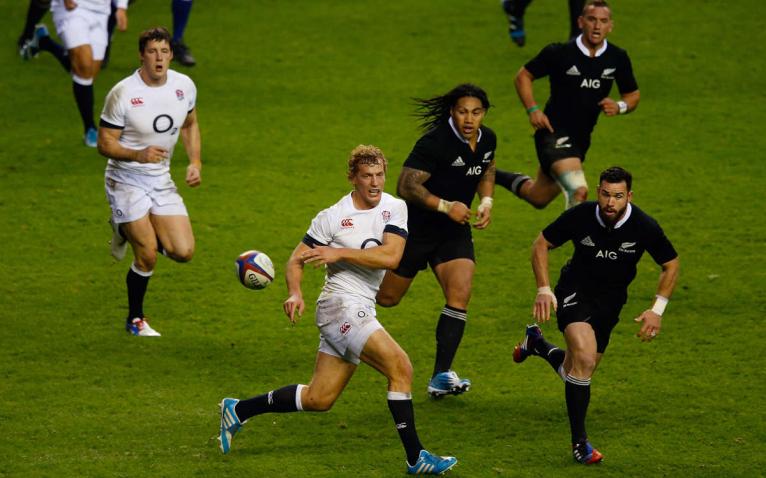
But before we have the reflections, we have the apology.
He arrives an hour later than originally agreed. Not because Twelvetrees is a prima donna who likes to keep a gentleman of the press waiting, but because he’s been having his final ‘frank conversation’ with George Skivington, the Gloucester director of rugby. Such conversations have entered Gloucester folklore, with Skivington himself grinningly noting that his senior player is not backwards in coming forwards when there is a point of difference.
Twelvetrees’ key point is that nobody – including the head coach – has a monopoly on wisdom. And that it is naïve to believe that coaches always know what they’re doing.
“There’s no time not to be (outspokenly honest) in the professional game,” he explains. “But knowing when to speak up is key. There are always moments in the dining area or having coffee where it’s easy not to say anything because everyone is relaxed and you can think, well, what’s done is done. But it’s important to have those tough moments or awkward conversations – conversations where, if I didn’t say anything, I’d get in the car and regret it going home.
“As a senior player, you learn when it must be said and when it must be said for the right reasons for the team. And if you don’t speak up then you’re just letting the team down.
“As a senior player, you learn when it must be said and when it must be said for the right reasons for the team. And if you don’t speak up then you’re just letting the team down.
“And I reckon for the majority of the time, Skivs and I would agree on how to get the boys on the right page or the team in the right direction. Or he would be, ‘Ah, you’re right, I hadn’t really thought about it like that,’ and he’d come back to me with a solution. Or he’d come to me, “Mate, what the bloody hell is going on here – why are the boys doing this?’ And I’d dig into it. And that’s the relationship I think a senior player has with a head coach. You can be honest. Because it’s purely about performance. And then you step outside and talk about the weather, the kids, and what the world outside is doing. It’s not personal, it’s purely because everyone is desperate to win.
“But as a youngster – 10 years ago – I would never have done that. I’d be like – the coaches know what they’re doing in there, just trust them. But sometimes the coaches just don’t know, because it’s rugby and there are 15 guys going at each other and they’re bloody good players. It’s never that easy.”
He expands on just what it is that makes a team tick psychologically before breaking off. He laughs. “Sorry, I got a bit deep there.”
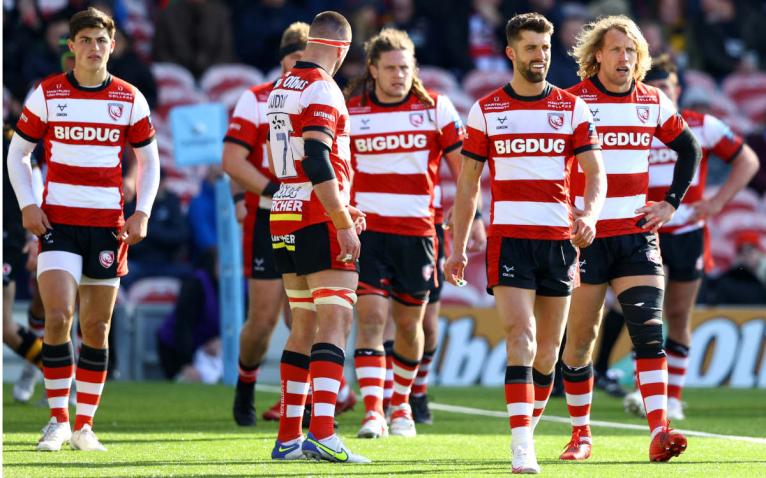
Twelvetrees has pretty much seen it all, and done most of it, on a rugby pitch: England caps, a tour with the British and Irish Lions, club trophies. But within his psyche is the shadow cast by the unappeasable and unachievable quest for perfection, a trait reminiscent of another goal-kicking inside back: Jonny Wilkinson. When looking back on his career, Twelvetrees admits he is drawn to the failures and the what-ifs rather than the medals and the positives. The fear of the imposter isn’t named directly, but it is lurking in the changing room.
“It sounds bad and weird, doesn’t it, but all my defining moments are negative.” That laugh again. “Missing kicks at goal, missing tackles…”
Are you a perfectionist then, I ask.
“Ahhh, I don’t know. Yeah, I think in this job most people are. All the happy memories are relief at winning or scoring in the corner or kicking the winning goal. And there are plenty of those as well. But it’s probably that itch you always want to scratch – the if-onlys. That’s probably one of the drivers. Even as a youngster, there was a burning desire within. Wanting to win, perhaps because you’ve been told you’re not going to make it or you’re good enough.
“People talk about imposter syndrome. Not that I’ve had it. Well, I’m just always – I should never have been here. I’m very lucky to be here. How do I stay in the building? By working really, really hard.”
Does he really feel that? Even with all the caps, the call-ups and the credit that’s come his way?
I understand the power of what a team coming together can do – and when it’s good it’s good, and when it’s bad it’s about understanding why.
“Yeah, I think most boys do. We’re very lucky to be here and there’s a shedload of people who want to be here. Look down the road at Hartpury College and all the teams they’ve got. How lucky am I, and how do I stay in the building? It’s by being really good and how does that work – by being a really good professional and a really good team bloke and performing well. Because as soon as you don’t – talk about the sport having a cut-throat nature – you’ll be out of the door. Haha! That’s life.’
And that’s Twelvetrees, leavening thoughtfulness with humour. He is a deep student of the game in the broadest sense, making a coaching role seem as inevitable as one of his languidly struck conversions. But he remains undecided about what he will do once his playing days are behind him. For now, he takes to the training fields of Ealing with a stack of insights gleaned from a decade-and-a-half in the top flight.
“I probably have the same amount of energy and youthful excitement now that I had when I first turned up at Gloucester in 2012 but probably have more wisdom and knowledge about the game, and a calmness about me,” he says. “I understand the power of what a team coming together can do – and when it’s good it’s good, and when it’s bad it’s about understanding why.
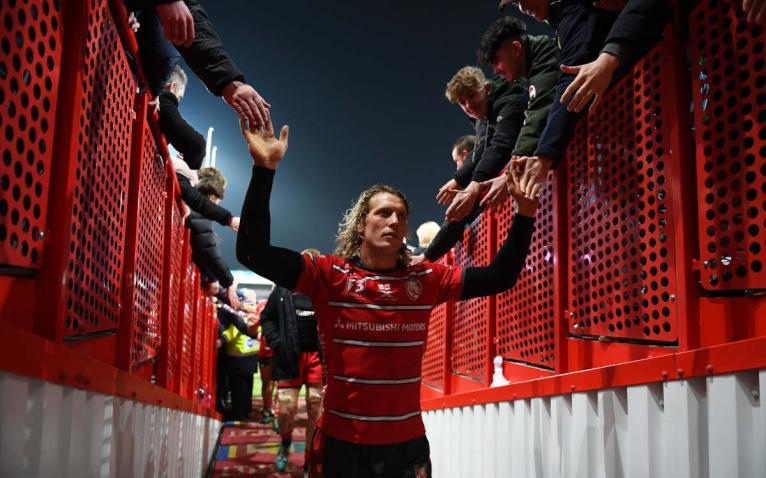
“Having a clear identity and a vision of where a team wants to go is key to getting things right on the pitch and that starts from the very top of the organisation. I’ve been around teams, including international teams, and seen what works and what doesn’t, and experienced four head coaches at Gloucester. In fits and starts we’ve had some great cohesion, including in my most recent times here.
“I’m excited to first and foremost work as hard as I can for Ealing and impose myself on the group and help them be the best they can be. It’s my nature to get down to it and work hard.”
While the Premiership’s financial crisis continues to rage, Twelvetrees believes the Championship has a key role to play in restoring the English game’s viability. He advocates two divisions of ten teams, with promotion and relegation, and a TV deal spread across the two. Thursday night matches should be aired to provide exposure to those in the second division.
The game needs sorting out and if I’m truly honest I believe it’s going to take a long time to sort out. Things don’t happen quickly, especially in the history of rugby.
“Isn’t that sport?” he asks rhetorically of promotion and relegation. “Wanting to be the best. That aspiration is what motivates most players. But if there’s a roadblock in the way it does affect the camaraderie between teams.
“The game needs sorting out and if I’m truly honest I believe it’s going to take a long time to sort out. Things don’t happen quickly, especially in the history of rugby.
“As players we were saying the other day, imagine if they aired some Championship games on Thursday nights. All the rugby community would be watching it. You’d get to see players you’d never seen before and it’s a shop window for them. If the broadcast deals get spread across two leagues – effectively the French model – it can only grow the (English) game.”
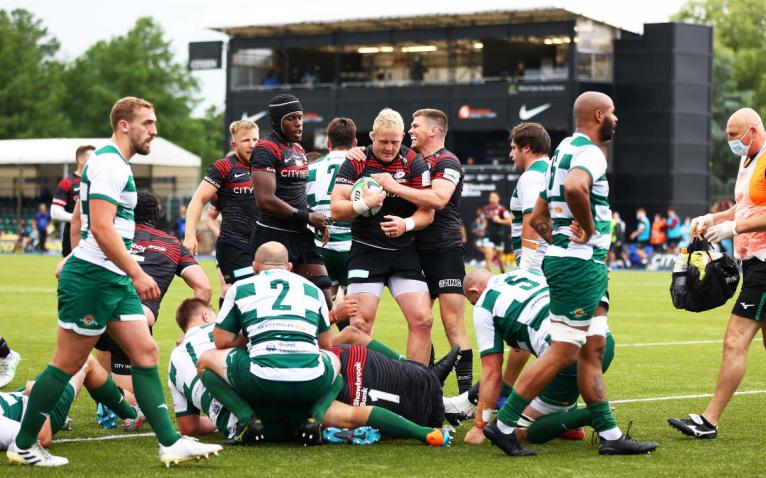
There is time for one more bout of reflection from Twelvetrees. When can the rugby pro truly allow their shoulders to drop?
“The one time you’re relaxed during a week is probably that ten minutes post-whistle when you’re in the changing room with your mates and you’re joking about what happened in the game,” he says. “Because you’ve won you can have a laugh that you knocked a ball on, or that there was a terrible pass, whatever. This is why we do it. That’s fun. And then you wake up the next morning and it’s, ‘Who have we got next week? Right, I’m ready to go again.’ I wouldn’t change it for the world, though.”
Billy Twelvetrees has played his final game for Gloucester and probably his final game in the Premiership. And those who have stuck around grounds after the final whistle over the years will have noticed something about him. It is that he himself sticks around. He signs this, signs that. Poses for a photo here, poses for a selfie there. Waves to the left, waves to the right. Makes laser-zapping sounds as he high-fives the kids by the tunnel. Makes sure no-one is forgotten, no-one overlooked. Rugby has given to Billy Twelvetrees, and Billy Twelvetrees has given back to rugby. The Premiership is losing one of its good guys; a man who is an ambassador for the game without ever really striving to be such; a man who loves rugby and the people in it, not least his friend Ed Slater. A man who will continue to stick around, one way or another.



I'll never forget Tigers v S Africa. What a game. Good luck. pal.
Un gran articulo de un tipo genial y muy humano.
Great read. Top player, even better man.